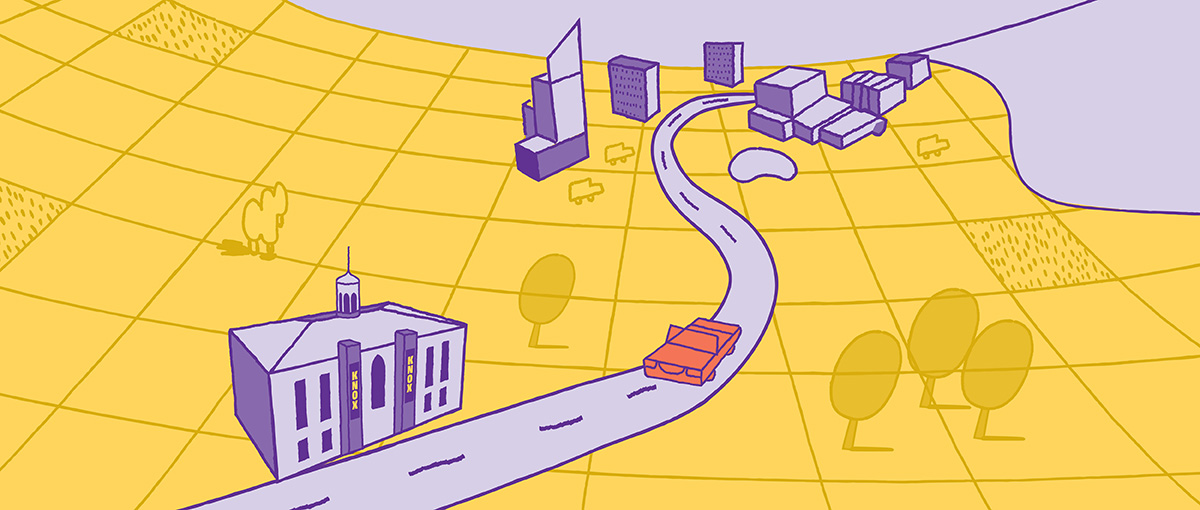

Knox Students Investigate Relics Unearthed by Professor
By Laura Pochodylo '14
Knox College faculty member Danielle Fatkin is giving Knox students hands-on experience with analyzing some of the ancient pottery materials she has uncovered while working on an archaeological dig in Jordan.
Once a week, Fatkin, assistant professor of history, runs a lab section that shows students the basics of ceramic analysis using materials transported -- with permission -- from Dhiban, Jordan.
Fatkin believes that the hands-on experience of learning to work with the materials from Jordan is an asset to a history education.
"When you can actually get in and do an experiment and work with the materials yourself, you have a fundamentally different understanding of what's at stake in an academic argument than when you've never actually practiced that particular skill," Fatkin said.
The lab, not yet associated with a specific class, is open to any students interested in participating.
"I run the lab as an extra thing so that students who have an interest in archaeology or pottery can come and work and see how to do ceramic analysis," Fatkin says.
Fatkin has been working at the archaeological site in Jordan for about 10 years, and she has been bringing back materials since coming to Knox in 2008. The materials are mostly pieces of pots from the Byzantine Period, which ranges from 325-650 C.E.
Fatkin has brought Knox students to the site for the summer field season, as well.
"We can't bring everything back, but the Jordanian government is tremendously generous," Fatkin explained. "The pottery, ... if it's not a whole pot, they are happy to let us take it out of the country on long-term loans."

Above: Students and faculty from Knox and other colleges at the Dhiban Excavation and Development Project in Jordan
Eventually, Fatkin plans to turn the extracurricular lab experience into a vital component of her Archaeology and the History of the Bible class.
"One of the things I do in that class is talk about archaeological controversies. A lot of them have to do with how ceramic analysis is done and how ceramics get dated," Fatkin said.
Most of the pottery in Fatkin's collection is from the Byzantine period, which is several centuries later than the periods discussed in hers Archaeology and the History of the Bible class. But the dates aren't that important, Fatkin believes. Rather, what's important is for students to learn some of the general principles of ceramic analysis.
"Even if we aren't working on pottery from the same time as the controversies, students would still learn how ceramicists work," Fatkin said. "It would give them greater insight into what those arguments are really all about and what people can and can't say."
Ideally, Fatkin hopes to use the Jordanian materials to construct an online tool that complements the lab section.
"I would like to create a situation where students can come and work in the lab, but there's also an online tool that is a combination of instructional videos and readings, sort of a step-by-step process to teach students how to do ceramic analysis," Fatkin said. "I would like this to be a tool that I could then share with other people at other campuses so that wherever you were, if you had an interest in ceramic analysis, you could use this tool."
More photos from Danielle Fatkin's archaeology lab are available in a set at the Knox College Flickr channel
Published on November 13, 2013

